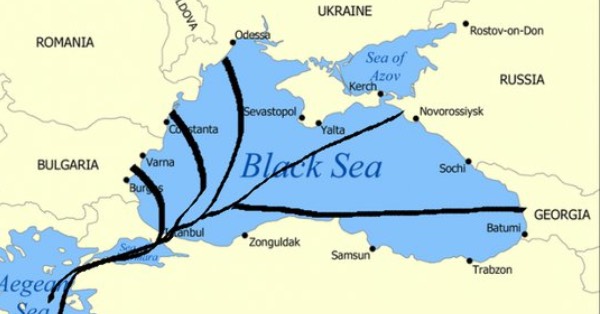Turkey has increased the transit fee it charges commercial ships to use the Bosporus and Dardanelles, in accordance with the rights granted to it by the Montreux Convention.
Accordingly, the fees were increased fivefold and the new toll was set at $4 per tonnage.
The new regulation will enter into force on Oct. 7, 2022.
As of that date, the current lighthouse, rescue and health charge fees from the straits will be raised, increasing the current income from $40 million to $200 million, the Turkish daily Sabah reported, “with the elimination of 39 years of victimization.”
According to the Montreux Convention signed in 1936, Türkiye retains the right to demand lighthouse, rescue and medical fees from ships passing through the Bosporus and entering and leaving the Dardanelles.
At that time, the calculation was made over the common currency Germinal franc, which was accepted by the United Nations as the gold franc.
In 1936, one franc was equivalent to 0.29 grams (0.01023 ounces) of fine gold. When the Germinal franc was no longer in circulation, the payments started to be made in U.S. dollars based on the Turkish lira exchange rate but the value of 1 franc was still kept as 0.29 grams of fine gold, regardless of the current exchange rates.
In 1983, Türkiye waived about 75% of its toll rights of that day and fixed 1 gold franc to $0.8063 with a discounted value.
To date, the tolls have been applied by multiplying the current exchange buying rate by the discounted gold franc value of $0.8063.
However, over time, the amount has eroded in the face of increasing inflation and gold value, causing Türkiye to undercharge transits.
The Montreux Convention was adopted in 1936. It preserves the freedom of passage through the straits for merchant ships both in peacetime and in wartime, but the regimes are different for everyone.
Ankara wants to reduce the shipment of oil, liquefied gas and chemicals through the Bosporus in order to lower the risk of accidents in the narrow waterway.
The country has already been preparing to complete Kanal Istanbul, a mega waterway project on the edge of Istanbul and an alternative to the Bosporus.
Championed by President Recep Tayyip Erdoğan and revealed in 2011, Kanal Istanbul is one of Türkiye’s most strategic megaprojects, meant to stem the rising risk posed by ships carrying dangerous goods via the Bosporus, especially oil tankers.
The 45-kilometer (27.96-mile) long canal, which will be built through Istanbul’s Küçükçekmece-Sazlıdere-Durusu corridor, will connect the Black Sea north of Istanbul to the Marmara Sea in the south. It will boast a capacity of 160 vessels a day and is expected to create significant economic value by reducing transit periods and costs, while at the same time providing a return through the collection of passage fees.









































